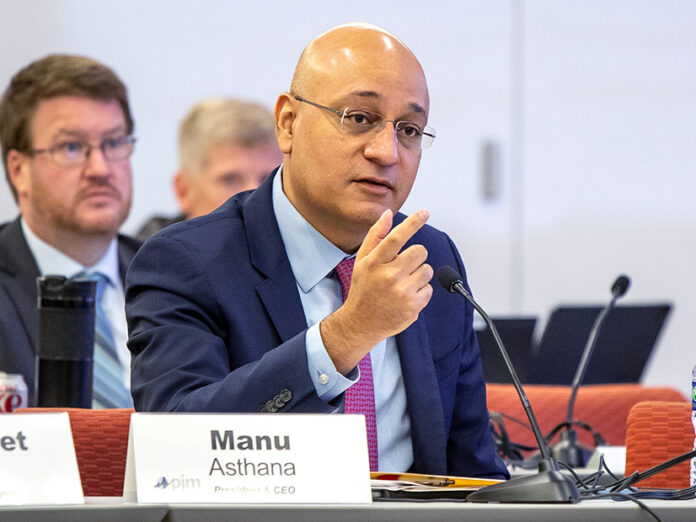Manu Asthana’s resignation as President and CEO of PJM Interconnection marks a significant turning point for the regional transmission organization overseeing the electric grid across 13 states, including New Jersey. Asthana’s tenure, beginning in 2019, was characterized by efforts to navigate the complexities of grid management during the COVID-19 pandemic and to implement market reforms. However, his tenure also faced criticism for perceived prioritization of fossil fuel interests over renewable energy initiatives.
Leadership Transition at PJM Interconnection
Asthana’s decision to step down was influenced by personal reasons, notably a desire to return to Texas to be closer to family. Despite his departure, he will continue to serve as a senior advisor to the PJM Board through June 2026, ensuring a degree of continuity during the transition period. The PJM Board has initiated a search for a new CEO, engaging the executive search firm Korn Ferry to assist in identifying both internal and external candidates. Board Chair Mark Takahashi expressed gratitude for Asthana’s leadership during a period of significant change and emphasized the strength of the current executive team.
Criticism Over Energy Policy Direction
During Asthana’s leadership, PJM faced mounting criticism from environmental advocates and state officials, particularly in New Jersey, for its approach to integrating renewable energy sources into the grid. The organization was accused of favoring fossil fuel projects, such as natural gas, over cleaner alternatives like wind and solar power. This stance was evident in PJM’s advocacy for natural gas generation, citing its ability to provide continuous power, which drew ire from renewable energy developers and climate policy advocates.
Ed Potosnak, executive director of the New Jersey League of Conservation Voters, criticized PJM’s support for fossil fuels, highlighting the adverse health impacts associated with such energy sources and the rising electricity costs for New Jersey families. Potosnak emphasized that clean energy options, particularly solar power, are not only more affordable but also healthier and more reliable.
Challenges in Grid Reliability and Rising Costsmyjournalcourier.com
PJM’s capacity auction results have raised alarms among state officials and consumers. The most recent auction saw prices surge to nearly ten times higher than the previous year, a spike attributed to a shrinking power supply and increasing electricity demand. This surge is expected to result in a $14.7 billion increase in electricity costs for homes and businesses across the PJM region, including New Jersey. The governors of New Jersey, Pennsylvania, Illinois, Maryland, and Delaware have urged PJM to revise its pricing process to mitigate these costs and to encourage greater participation from renewable energy sources.Environment America+3Reuters+3New Jersey Monitor+3
Concurrently, PJM has been criticized for delays in processing interconnection requests for renewable energy projects. A report from the Natural Resources Defense Council indicated that despite reforms intended to expedite the interconnection process, many renewable projects remain stalled due to backlogs. In New Jersey, the state had to negotiate a separate transmission deal with PJM to accommodate its ambitious offshore wind goals, underscoring the challenges in aligning PJM’s processes with state-level renewable energy objectives.New Jersey Official Site+3New Jersey Monitor+3News From The States+3
Looking Ahead: Opportunities for Reform
Asthana’s departure presents an opportunity for PJM to reevaluate its policies and practices concerning renewable energy integration and grid management. State officials and environmental advocates are hopeful that the incoming leadership will prioritize the acceleration of renewable energy projects, streamline the interconnection process, and adopt market structures that reflect the growing demand for clean energy solutions. As New Jersey continues to pursue its renewable energy goals, including the development of offshore wind capacity, the role of PJM in facilitating or hindering progress will be closely scrutinized.
Recent Developments in PJM Interconnection and Energy Policy
Explore the impact of Manu Asthana’s resignation as CEO of PJM Interconnection on New Jersey’s energy landscape. Delve into the challenges of interconnection delays, rising electricity costs, and the state’s pursuit of ambitious renewable energy goals.

US governors push back on PJM after record-high power plant prices
169 days agoAP NewsUS approves fast-tracking power plants in mid-Atlantic grid over complaints that it favors gas63 days agoTimeCommunity Solar Makes Renewable Energy Available to All-If Power Companies Allow It533 days ago
Sources












